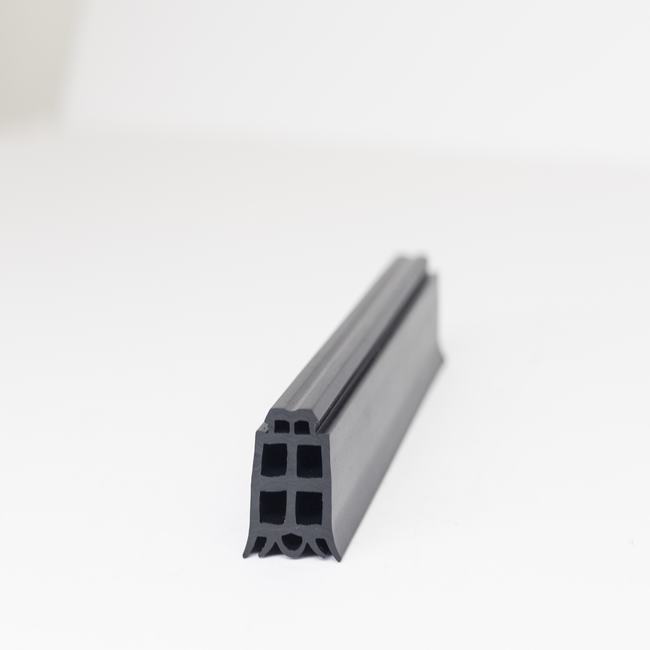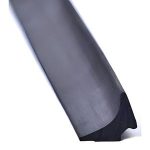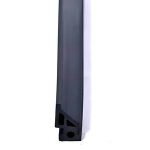Industrial seals and gaskets play a critical role in ensuring the efficiency, reliability, and safety of various industrial processes across a wide range of sectors. These components are designed to create a secure barrier between different elements within a system, preventing the leakage of fluids, gases, or contaminants. The intricate nature of industrial machinery demands precision and durability in sealing solutions, making seals and gaskets indispensable elements in the functioning of mechanical systems.
Types of Industrial Seals:
- O-Rings: These are circular elastomers that are commonly used to seal static and dynamic connections in a wide array of applications. O-rings are versatile and can withstand a range of temperatures and pressures, making them suitable for diverse industrial settings.
- Gaskets: Gaskets are flat seals that are placed between two surfaces to prevent leakage. They come in various materials, such as rubber, metal, or composite materials, and are tailored to specific applications based on factors like temperature, pressure, and chemical compatibility.
- Oil Seals: Also known as shaft seals, oil seals are designed to prevent the leakage of lubricants in rotary shaft applications. They safeguard the machinery by keeping contaminants out and ensuring the proper functioning of bearings and other rotating components.
- Mechanical Seals: Commonly used in pumps and compressors, mechanical seals are dynamic sealing devices that provide a secure barrier between rotating and stationary parts. They are crucial for preventing leaks in high-pressure and high-speed applications.
- Gland Packing: This traditional sealing method involves wrapping a material around a rotating or reciprocating shaft, creating a barrier against leaks. Gland packing is commonly used in valves and pumps.
- Diaphragm Seals: Employed in pressure measurement applications, diaphragm seals act as a protective barrier between the process medium and the measuring instrument. They ensure accurate pressure readings in corrosive or high-temperature environments.
Materials and Considerations:
Industrial seals and gaskets are manufactured from a variety of materials to meet the specific requirements of different industries. Common materials include rubber, silicone, neoprene, metal, PTFE (polytetrafluoroethylene), and composite materials. The choice of material depends on factors such as temperature, pressure, chemical compatibility, and application-specific needs.
In high-temperature applications, materials like silicone or metal may be preferred, while chemical-resistant materials such as PTFE are crucial in environments with aggressive substances. The design and construction of seals and gaskets are also influenced by factors like ease of installation, maintenance requirements, and the desired lifespan of the components.
Applications:
The applications of industrial seals and gaskets are vast and diverse, spanning industries such as:
- Automotive: Seals are integral to the proper functioning of engines, transmissions, and various automotive systems.
- Oil and Gas: In this industry, seals and gaskets are used in pipelines, valves, and drilling equipment to prevent leaks and ensure safety.
- Aerospace: Seals play a critical role in aircraft engines, hydraulic systems, and fuel systems, contributing to the overall safety and performance of aerospace components.
- Chemical Processing: Seals and gaskets are employed to contain and control the flow of chemicals in processing equipment, ensuring safety and preventing environmental contamination.
- Pharmaceuticals: In pharmaceutical manufacturing, seals are used in equipment to maintain sterile conditions and prevent contamination.
- Power Generation: Seals and gaskets are crucial in power plants, ensuring the efficient and safe operation of turbines, pumps, and other equipment.
- Food and Beverage: Seals are employed in processing equipment to maintain hygiene and prevent contamination in the food and beverage industry.
In conclusion, industrial seals and gaskets are foundational components that contribute to the reliability, efficiency, and safety of machinery and systems across various industries. Their design, material selection, and application-specific customization are paramount to their success in maintaining the integrity of industrial processes. As technology advances, the development of innovative sealing solutions continues to drive improvements in overall system performance and longevity.





